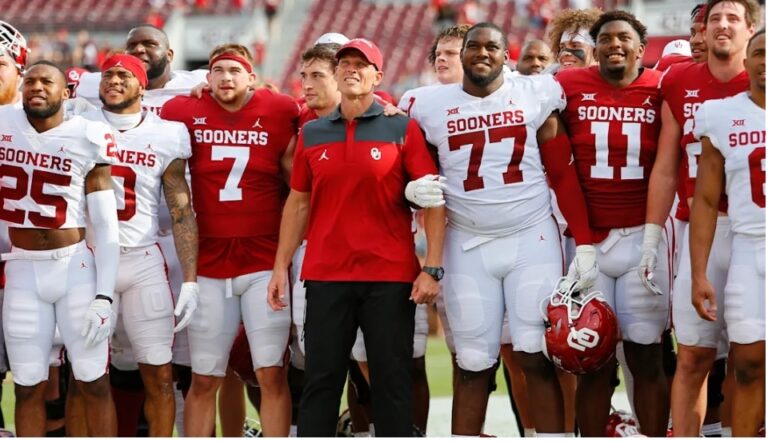In a significant shift in college football tradition, Oklahoma has become the latest powerhouse program to cancel its spring game. This decision is not an isolated incident, but rather a symptom of a larger issue plaguing the sport: tampering. The rise of the transfer portal and Name, Image, and Likeness (NIL) era has created an environment where programs are increasingly wary of showcasing their talent, fearing that other teams will poach their players.
The concept of spring games has been a staple of college football for decades, providing fans with an early glimpse of their team’s prospects and coaches with a valuable opportunity to evaluate talent in a live setting. However, with the current state of the transfer portal, these games have begun to take on a different dynamic. Rather than a celebration of the team, they are starting to resemble open auditions for the transfer portal.
Oklahoma’s decision to scrap its spring game is a direct response to these concerns. Instead, the Sooners will host the “Crimson Combine,” a fan-friendly event featuring skill competitions, meet-and-greet sessions, and a controlled environment that limits outsiders’ access to the team’s roster. This approach allows Oklahoma to maintain a level of secrecy around its players, reducing the risk of tampering.
Nebraska’s Matt Rhule was one of the first coaches to publicly express concerns about the implications of spring games in the current college football landscape. His suggestion to keep team activities behind closed doors has been echoed by Oklahoma’s decision, and it is likely that other programs will follow suit.
While some coaches, like Clemson’s Dabo Swinney, believe that cancelling spring games is not a sufficient solution to the tampering problem, the trend is clear. Over a dozen programs have already opted out of traditional spring games, and it would not be surprising to see more teams adopt this approach.
The tampering crisis in college football is a complex issue, and there is no easy solution. However, by cancelling spring games and limiting access to their rosters, programs like Oklahoma are taking a proactive step to protect their players and maintain a competitive edge. As the college football landscape continues to evolve, it will be interesting to see how this trend develops and what other measures programs take to address the issue of tampering.
